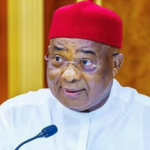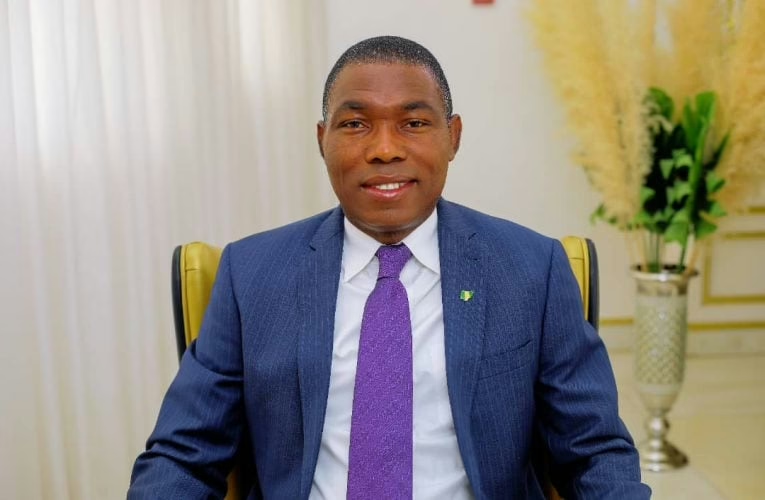Prince Adewole Adebayo, the Social Democratic Party (SDP) candidate for the 2023 presidential election, has challenged the widely touted claims of economic stability under President Bola Tinubu’s administration and the All Progressives Congress (APC).
He criticized the government’s announcement that inflation has decreased to 20.7 percent, describing it as an affront to Nigerians. Adebayo pointed out that inflation rates across many African nations remain significantly lower, often below five percent.
Highlighting examples such as Benin Republic with inflation under two percent, Senegal at less than three percent, Tanzania at 3.3 percent, and both South Africa and Morocco maintaining inflation below five percent, he emphasized that Nigeria must reduce inflation to around seven percent before genuine economic recovery can be claimed.
While acknowledging a modest improvement compared to the previous year, Adebayo stressed that Nigeria’s inflation rate remains alarmingly high relative to its African peers, indicating substantial progress is still needed.
“Although the current figures show a slight improvement from last year, the economy remains far from where it should be. For context, Nigeria ranks as the fourth highest in inflation globally. Neighboring Benin Republic’s inflation is barely above one percent, and most ECOWAS countries using the CFA franc maintain rates around two to 2.7 percent. Even Tanzania, whose economic conditions share some similarities with ours, records only 3.3 percent inflation. South Africa and Morocco, our regional competitors, keep inflation below five percent. At 20.7 percent, Nigeria’s inflation is still excessively high. We need to bring it down to about seven percent before we can seriously discuss economic recovery,” he explained.
Adebayo urged the Federal Government to prioritize strengthening the real economy by investing in infrastructure and job creation. Citing an International Monetary Fund (IMF) report, he noted that Nigeria’s inflation is largely driven by inadequate infrastructure.
“The IMF’s analysis reveals that poor infrastructure is a key factor behind Nigeria’s inflation. Enhancing infrastructure would reduce transportation costs, which in turn would lower food prices, boost productivity, and increase disposable income. This would help alleviate the impact of low wages and poverty. Therefore, the government must focus on infrastructure development and agricultural growth,” he asserted.
He also forecasted that if current policies persist, the Nigerian Naira could depreciate to approximately N1,430 by Christmas. However, he cautioned that such a currency adjustment alone would not translate into a robust economy.
“A weaker Naira might stabilize market expectations and reduce speculative demand for dollars, but it doesn’t equate to economic strength. It simply allows for better financial planning without panic-driven currency bidding,” he remarked.
Responding to former House Speaker Yakubu Dogara’s statement that President Tinubu inherited a failing economy, Adebayo commended Dogara’s candidness but emphasized the need for realistic, sustained efforts to grow employment, agriculture, and infrastructure.
He acknowledged that the economy left by late President Muhammadu Buhari was mismanaged but lamented that Tinubu’s administration has yet to implement significant reforms.
Drawing an analogy to a patient in an emergency room, Adebayo said, “Recovery depends on accurate diagnosis. While President Tinubu has stabilized the economy, it’s unclear if he has identified the root causes of its ailments. The patient isn’t in immediate danger, but a cure remains elusive.”
He elaborated, “Some of the government’s actions have even worsened the situation, though there have been minor successes in certain sectors, which may create a false impression of recovery. For instance, Tinubu has increased nominal government revenue and reduced domestic borrowing compared to Buhari’s tenure, improving the fiscal balance sheet. However, due to flawed policies, these revenues won’t sufficiently fund infrastructure or government programs in real terms.”
“Another factor is the rebasing of inflation figures, which altered how inflation is calculated. The reported drop from 21.7 to 20.7 percent doesn’t necessarily reflect improved economic performance but rather a change in measurement methodology,” he added.
“Additionally, food inflation, a major component of overall inflation, has declined. Although this reduction is reflected in statistics, many Nigerians have yet to feel its impact. It’s akin to lowering a bag of rice from ten feet to eight feet above your reach-you still can’t grab it, but it’s closer than before,” Adebayo concluded.






















